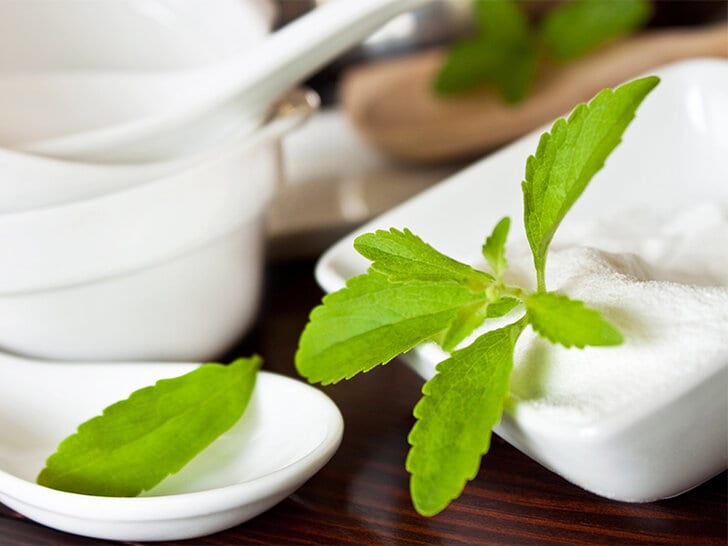The oft-quoted saying, the food you eat can either be the safest form of medicine or the slowest form of poison, is apt for the 21st century. Today, we are so fond of having good tasting food that we often overlook how ridiculously low it measures on nutrition scales. And it’s this food that can be excessively harmful to our bodies.
While many foods aren’t great for our body, the most common one is sugar. When consumed in large amounts, sugar can cause weight gain, diabetes, or internal inflammation. Since medical experts started highlighting these ill-effects of sugar, people have started looking for its substitutes. ‘Coz, of course, doing away with it altogether would make life too dull, won’t it?

So, after a lot of research, scientists came up with Stevia as the safest sugar alternative, and ever since then, the sweetener has been widely used. Surprisingly, recent studies have raised questions on the effects of the plant-based sweetener on the human gut. Stick around with us as we shed more light on the issue.
What exactly is Stevia?
First found in countries like Brazil and Paraguay, Stevia is 300 times sweeter than regular table sugar but comes with zero-calories (promise!). Its glycemic index is less than 1, which maintains blood sugar level, unlike several other substitute sweeteners.
While some sugar alternatives are better than others, saccharin and sucralose have been found to increase mice’s tumor growth. Although these findings aren’t confirmed, people are worried about using these substitutes. Since stevia doesn’t come with such scary side-effects, naturally, people prefer using it.

Read – How can physical work out help in controlling diabetes?
Why the worry around using Stevia?
Contrary to the popular belief that using Stevia is absolutely safe, recent studies show that there can be some drawbacks to consuming it excessively.
A report featured in Molecules showcases researchers’ findings from the Ben-Gurion University (BGU) of Israel. According to tests conducted on Stevia, the sweetener is found to be harmful to the human gut.
Our gut has quorum sensing pathways that help bacteria communicate with each other, which leads to microbial regulation. Stevia, apparently, slows down this bacterial communication.
To come up with this conclusion, scientists had used two forms of Stevia, namely the commercial herb supplement and the purified stevia extract, to check how they react when they come in contact with gut bacteria. The purified extract reportedly showed molecular interactions and also possible heckling of certain bacterial communications.

Based on their findings, researchers concluded that Stevia might be one reason behind an unbalanced gut. But they also confirmed that any form of Stevia doesn’t kill gut bacteria.
Read – How can you improve your gut health?
Can we trust Stevia?
Lead researcher of the BGU Avram, Dr. Karina Golberg, says that this study is just the beginning. The world needs more studies before the food industry completely replaces sugar with Stevia. People should know about the sweetener’s effects and acceptable daily doses. So for now, we’d suggest that depending on it completely wouldn’t be safe.
